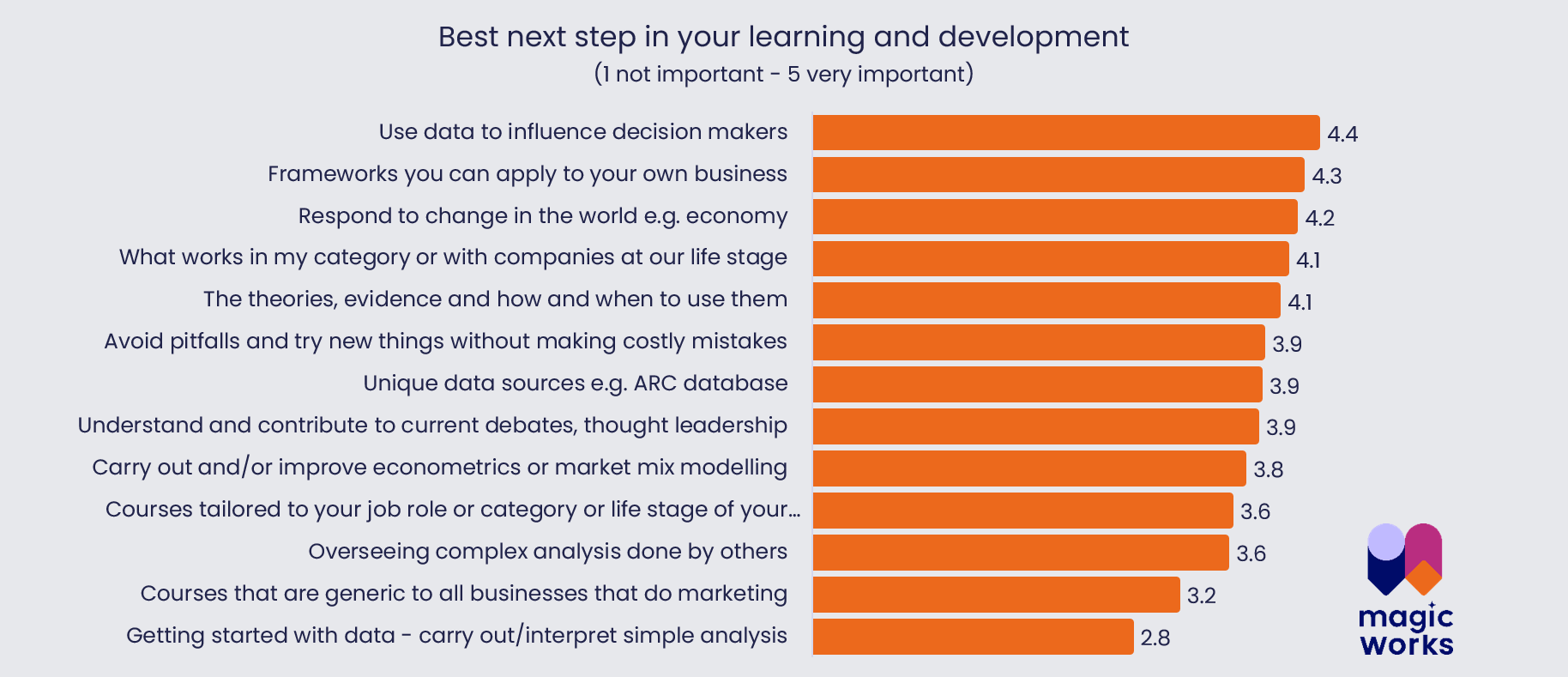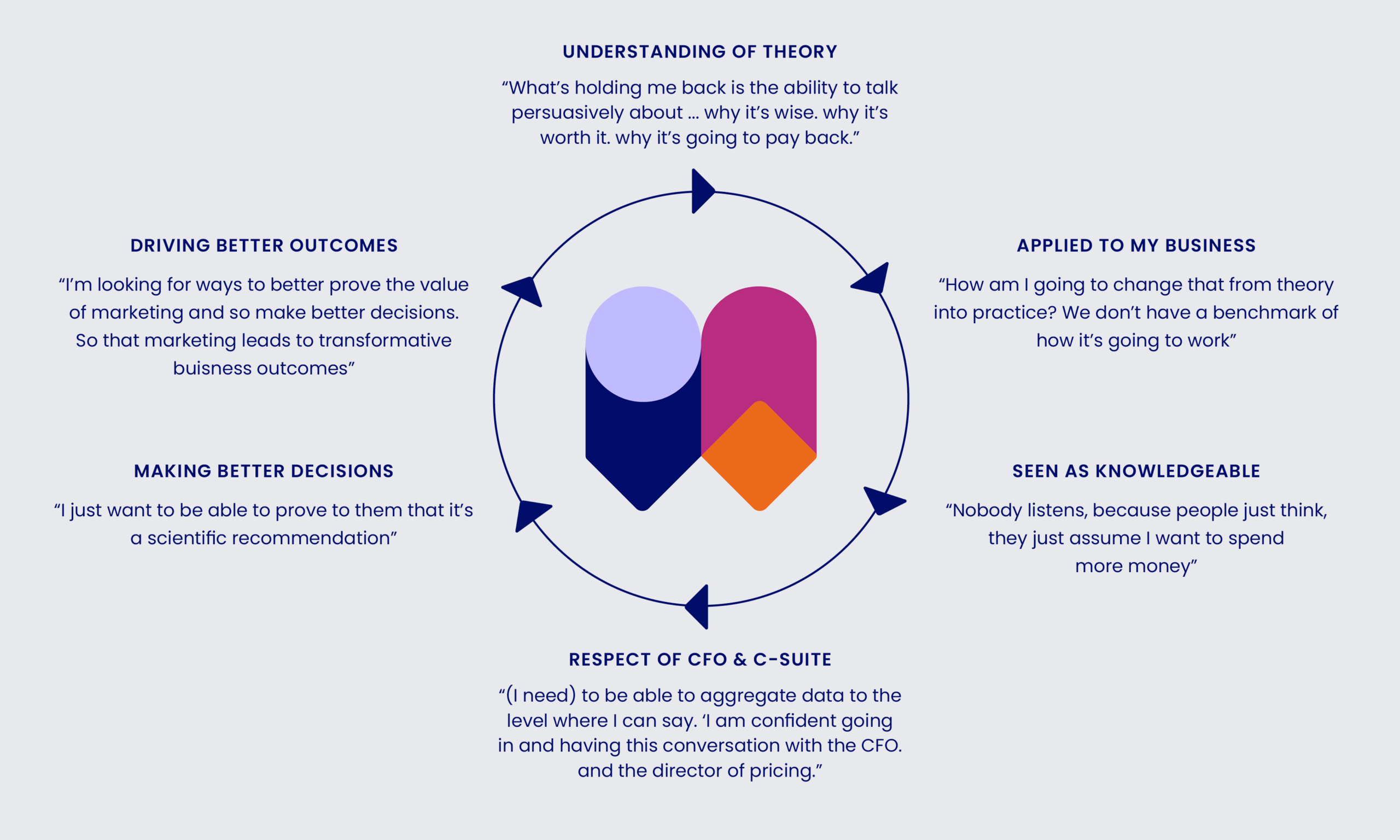“A wonderful deluge of practical, evidence-led insight, it's completely changed how I view marketing and will help us grow.”
Jess Hall, IDEOIn Jurassic Park, Dr. Ian Malcolm was by far the cleverest character. He was bang on the money when he said just because you can bring dinosaurs back to life using a bit of DNA trapped in amber, it doesn’t mean you should.
It’s a lesson I thought about a lot in 2023.
Because I can teach, I was a university lecturer for many years. I know a lot of stuff about effective marketing, and I’ve been coaching marketing people since 1999.
But if I brought new training courses to modern day earth, would I, one day, regret it?
With my team at Magic Numbers, I interviewed marketers, carried out surveys, and ran a pilot course. We found something out. It’s that although there’s more training for marketing people than ever before, there’s an important gap in what’s on offer.
Marketing training gives people knowledge, but not the skills to adapt that knowledge to their own business, or the credibility to use it convincingly.
It means people struggle to convert their training into marketing strategies that actually get used.
It’s all a bit “one size fits all”
In the UK, only 24% of marketers have any formal training, and 66% agree this is a “major blocker” to progress. In the US, only 27% are trained, and in Australia, it’s better, but still only 32%.
This should mean that marketers who partake will have a competitive advantage. Their businesses or clients should do better in the marketplace, and their careers should flourish.
So why don’t more people do it?
Well, part of the problem is that some marketing training is too formal, too full of contorted academic language, too long winded and boring.
The marketers we interviewed found some training they’d had “horrific”. They wanted training that’s “concise”, “punchy”, and in “plain simple English”.
But there’s another, bigger problem. One that applies even in places where the delivery is much better. It’s that even though the knowledge is right and relevant, it can be a bit “one size fits all” and theoretical. It can be hard to apply in a real-life business.
People said their marketing effectiveness blockers aren’t about knowing the theory. They’re about “changing theory into practice” and “being able to talk persuasively about why it’s worth it”.





